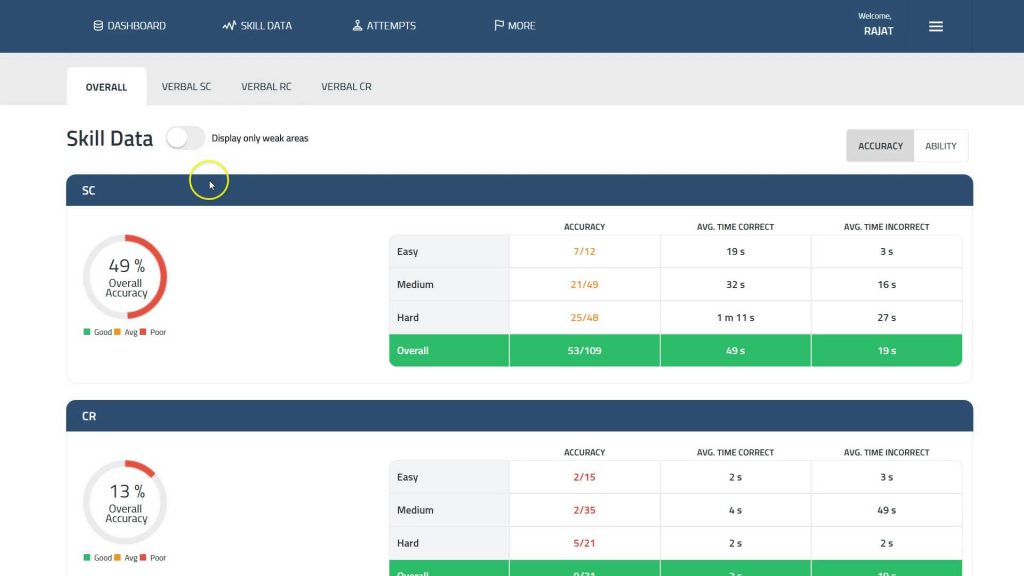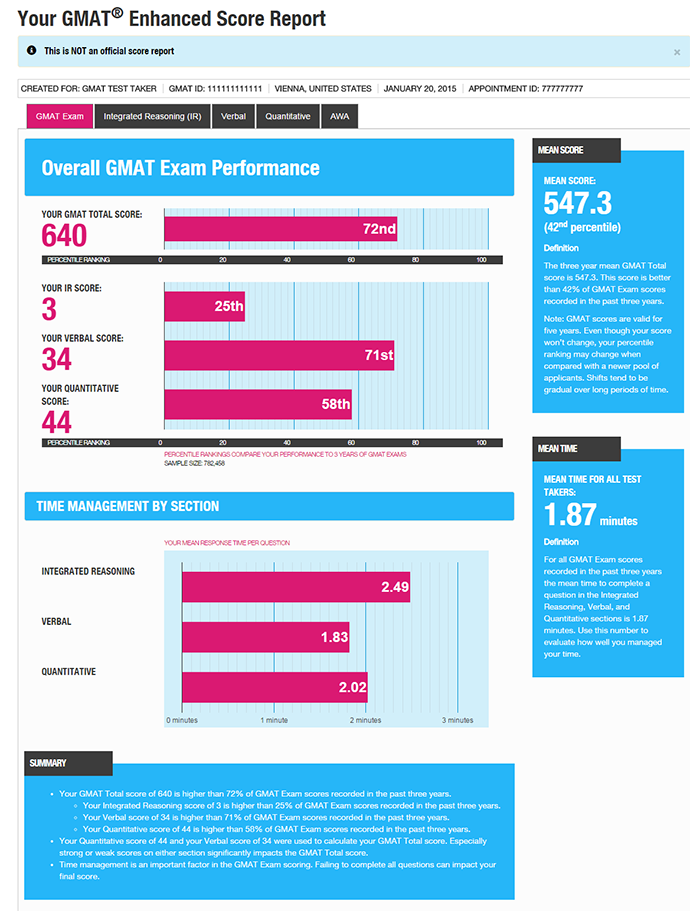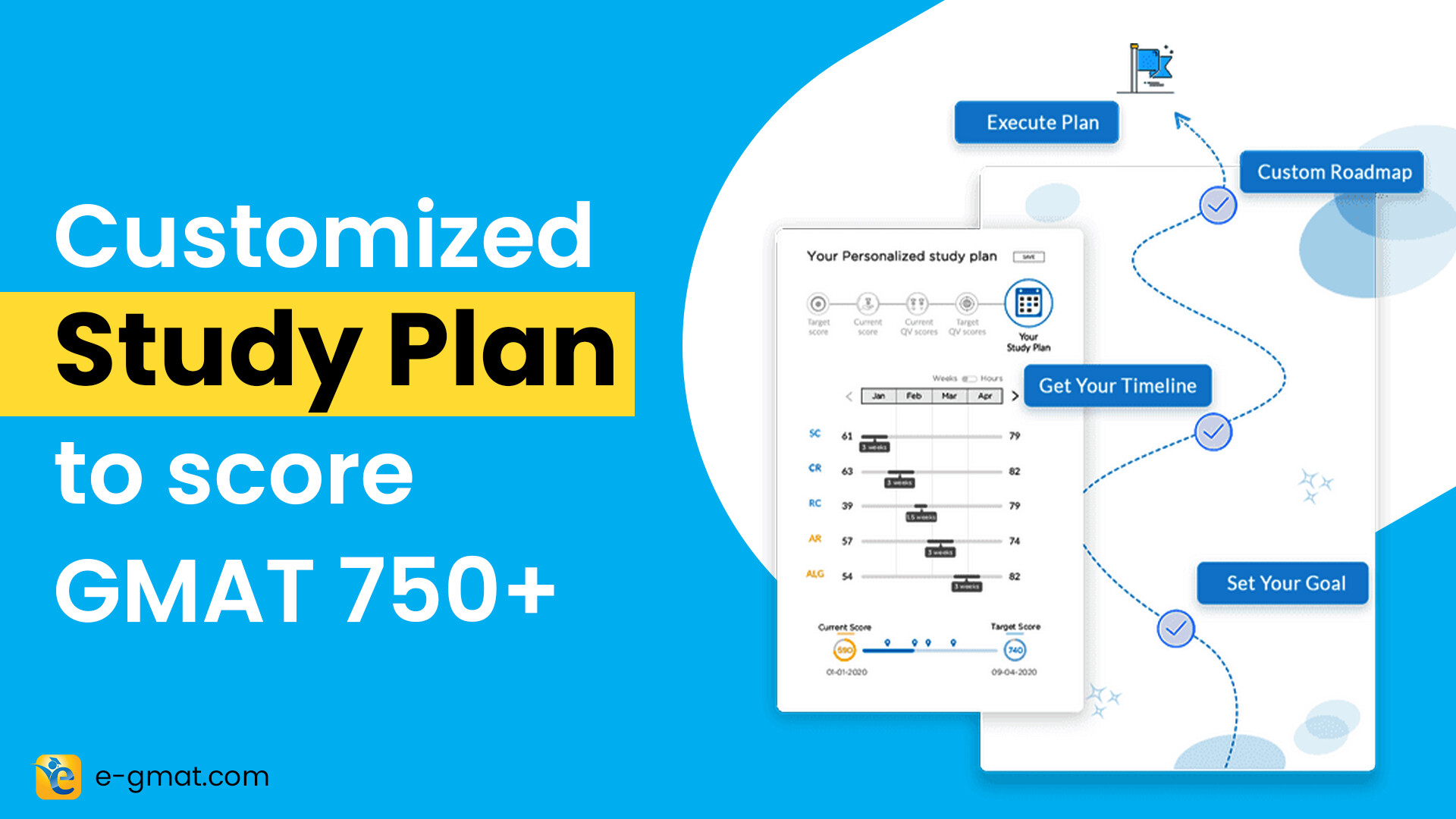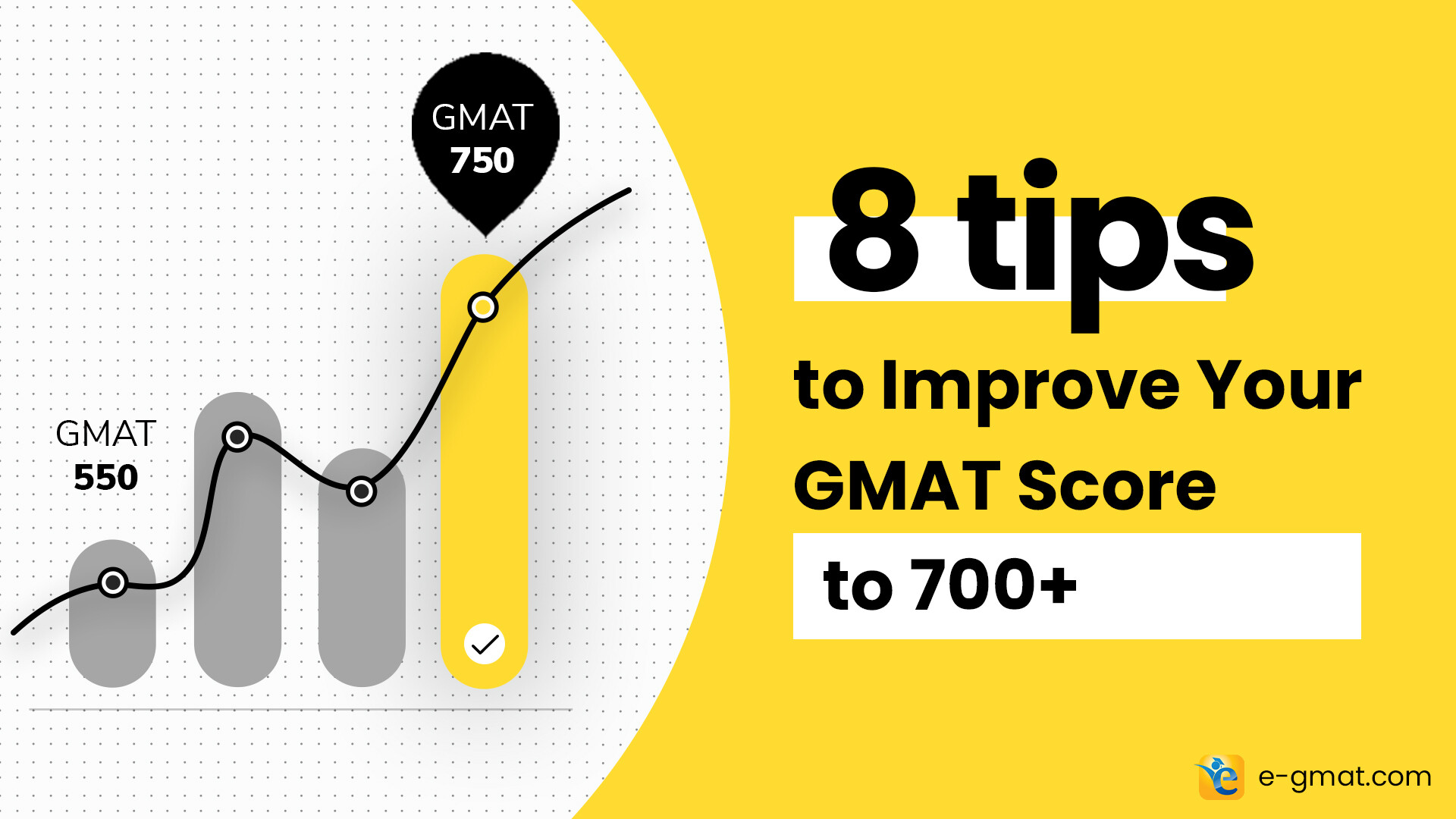In our previous articles, we have seen how the GMAT works as an adaptive test. We have also explored the timing strategies that will help us in getting a high score on the GMAT. However, there is a crucial component we are yet to cover, i.e., measuring ability during preparation for the GMAT. In this article, we cover the various methods you can use to estimate and measure your current ability in the GMAT.
“If you can’t measure it, you can’t improve it.” This quote by Peter Drucker, widely regarded as the father of modern business management, can be applied as-is to GMAT preparation.
How can you measure GMAT ability?
Depending on whether you are a first time GMAT test taker or you’re retaking the GMAT to improve your score, the following are the ways you can measure your current ability levels in the different sub-sections of the GMAT. Watch this video to learn how ability is more important than accuracy on the GMAT:
Take a free trial to get unlimited access to concept files, live sessions, and practice questions. For any strategic advice for GMAT or MBA Admissions, write to us at acethegmat@e-gmat.com. We are the most reviewed GMAT prep company on GMATClub with more than 2450 reviews
1) For first-time test takers
2) For retakers: Using GMAT Enhanced Score Reports (ESR)
1.1) Measure GMAT ability using Official Guides (OG):
To determine your current ability level the Official Guide provides diagnostic quizzes for each subsection in the GMAT. The following different diagnostic quizzes are available:
- Problem Solving Diagnostic Quiz
- Data Sufficiency Diagnostic Quiz
- Sentence Correction Diagnostic Quiz
- Critical Reasoning Diagnostic Quiz
- Reading Comprehension Diagnostic Quiz
It is neither necessary nor recommended to take all the diagnostic quizzes at once. The GMAC and we both suggest taking one diagnostic quiz at a time to determine a sub-sectional ability. Your next step after doing so should be to analyze your performance in the quiz to assess your conceptual gaps and weaknesses.
After this analysis, you should proceed to revisit concepts and solve more questions while maintaining a detailed error log.
However, there are a few limitations to the above method of determining your ability:
- Since the diagnostic quizzes provided are paper-based rather than computer-based, they are not adaptive.
- Diagnostic quizzes at best provide a rough estimate of your current ability and your potential GMAT score.
Given the above reasons, the GMAC itself has the following to say about the Diagnostic Test:
The Diagnostic Test is designed to give you guidance on how to prepare for the GMAT exam; however, a strong score on one type of question does not guarantee that you will perform as well on the real GMAT exam. The statistical reliability of scores on the Diagnostic Test ranges from 0.75 to 0.89, and the subscale classification is about 85%–90% accurate, meaning that your scores on the Diagnostic Test are a good but not perfect measure of how you are likely to perform on the real test.
1.2) Using GMAT Official practice tests:
Besides the OG, the GMAC also provides a bundle containing the official starter kit and 2 full-length practice tests. These practice tests are adaptive, computer-based, and use past questions that have appeared on the real GMAT test.
You are provided a detailed score report, which includes your verbal, quant, and sub-sectional abilities, after attempting a practice test.
4 additional mock tests can be purchased from the GMAC at the cost of $100.
However, if you are a first-time test taker and have just started with your preparation for the GMAT, using the official mock test to determine your ability would be overkill.
Plus, it would also be a wasteful way to utilize the official mock test. As these mock tests are the closest experience to the real GMAT test, we suggest that these should be used at a later stage of your preparation. Possibly when you are done studying all concepts and want to check your preparedness, or when you are done with revising concepts for a section.
1.3) Using Scholaranium:

At e-GMAT, we have built and created our own quizzing platform called Scholaranium.
In Scholaranium, we provide OG diagnostic quizzes as well as ability quizzes for each subsection in the GMAT. It displays your ability level after you attempt any diagnostic quiz:
Following are the benefits of using Scholaranium:
- Questions created by the top-rated GMAT experts on GMAT club
- Second highest-reviewed quizzing platform besides GMAT Club mock tests
- Timed tests to simulate actual GMAT like test-taking
If you are planning to take the GMAT, we can help you with a personalized study plan and give you access to quality online content to prepare. Take a free trial to get unlimited access to concept files, live sessions, and practice questions. For any strategic advice for GMAT or MBA Admissions, write to us at acethegmat@e-gmat.com. We are the most reviewed GMAT prep company on GMATClub with more than 2450 reviews
Other advantages of using ability quizzes instead of exhausting mock tests are:
- Requires you to be proficient in all 3 sections: Since a mock test consists of all the sections that would appear in the actual GMAT, it evaluates your ability as a whole. Consider a scenario in which you have just completed preparing for Sentence Correction. Giving a mock test at this time, when you have not prepared for other sections will lead to a low overall score. Besides providing an inaccurate measure of your ability, this also negatively impacts your confidence. In Scholaranium, ability quizzes for SC will not only provide a realistic estimate of your SC ability but also help you do so in 30 minutes compared to 3 hours you will otherwise spend in taking a complete mock test.
- Impacted by timing: Struggling to finish a mock test due to poor time management or unpreparedness on the other subsections results in a poor measure of ability. The shorter format and duration of ability quizzes allow you to focus on one section at a time. Thus, providing a more accurate measure of ability in that sub-section.
- Mocks take too long: A mock test could take up to 3 hours to attempt entirely. It is not fair to spend 3+ hours to evaluate a single sub-sectional ability. Moreover, if you are a working professional, setting aside 3+ hours on a weekday might be difficult, which further increases your preparation time. An ability quiz takes just 30 minutes to give you a reliable measure of ability. Hence, it is a much more time-efficient method to estimate your ability in a sub-section.
2) Using Enhanced score report (ESR) – For retakers

For an additional fee of $30 the GMAT provides Enhanced Score Reports for both your actual GMAT Test and official GMAT prep mocks.
The ESR provides a wealth of information from sub-sectional skills and abilities to your time management in different sections throughout your test attempt.
If you have already taken the GMAT and are looking to improve your score in your next attempt, then analyzing your ESR would help you unlock crucial insights into your weak areas and also understand how to improve your GMAT score.
Read our article on analyzing GMAT ESR reports
Take a free trial to get unlimited access to concept files, live sessions, and practice questions. We are the most reviewed GMAT prep company on GMATClub with more than 2450 reviews
In conclusion, knowing your current ability levels in the different sub-sections of the GMAT will not only help you in devising a plan and strategy to reach your target score, but it will also allow you to do so in less time. Please write to us with your questions at acethegmat@e-gmat.com.















